Sucralose: 2 Benefits And 8 Side Effects To Know
Get your facts right before including this artificial sweetener in your daily diet.
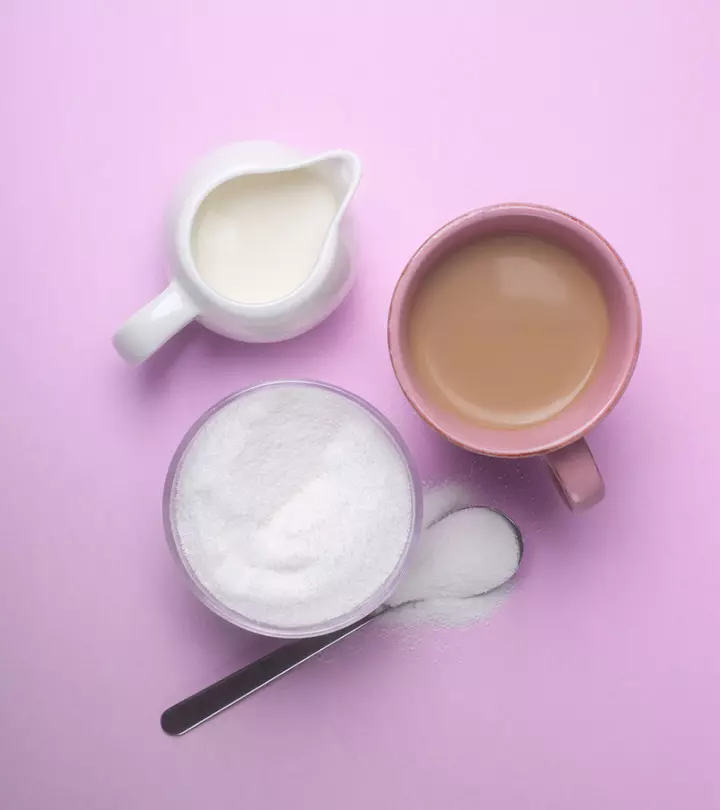
Image: Shutterstock
Artificial sweeteners like sucralose are turning out to be omnipotent, given their wide range of applications in the food and beverage industry. Besides, sucralose is also gaining popularity as a substitute for sugar among those watching their calorie intake and blood sugar levels. But is sucralose bad for you? Or does it have any benefits? What do experts say?
In this article, you will learn more about what is sucralose and is it bad for you, how it can react with your body’s metabolism, and its potential benefits and side effects. Keep reading.

 Know Your Ingredient: Sucralose
Know Your Ingredient: SucraloseWhat Is It?
An artificial sweetener that is extracted from regular table sugar.
What Are Its Benefits?
It may help maintain blood sugar levels and keep your weight in check.
Who Can Consume It?
It can be consumed by everyone.
How Often?
You can consume 5 milligrams of sucralose per kilogram of body weight per day.
Caution
Excess consumption may cause bloating and tooth decay and kill good gut bacteria.
In This Article
What Is Sucralose?
Sucralose is a highly potent artificial sweetener and is commonly used in various food products and beverages. It also has been approved for use globally. According to US Food and Drug Administration, this non-nutritive sweetener is 600 times sweeter than natural sugar (1).
However, sucralose is not digested by the body (like natural sugars) to produce energy. It also adds zero calories to your diet. It can be a good substitute for sugar if you are looking to reduce your calorie intake.
 Did You Know?
Did You Know?So, how does sucralose benefit your health? Does it affect your blood sugar levels? We answer these questions in the following section.
Key Takeaways
- Sucralose is a non-nutritive sweetener that is 600 times sweeter than natural sugar.
- It may help one maintain a low-calorie diet as it does not have any calories.
- However, sucralose contains citric acid and phosphoric acid that may accelerate tooth decay.
Is Sucralose Healthy? The Potential Pros
1. May Not Affect Blood Sugar Levels

Paula Doebrich, MPH and a registered dietitian nutritionist at Happea Nutrition, explains, “The structure of sucralose makes it unrecognizable to the body; therefore, the body cannot digest it. We get the taste of sugar without the calories or carbohydrates. This means it does not have any effect on blood sugar.”
Multiple studies have also shown that sucralose does not affect blood sugar levels, making it fit for consumption by people with diabetes (2), (3). However, a small study on people who had never used non-nutritive sweeteners concluded that their blood sugar and insulin levels increased after consuming sucralose (4). Hence, more studies are needed to understand this benefit of sucralose.
2. Does Not Impact Daily Caloric Intake

Sucralose may help one maintain a low-calorie diet while still enjoying sweets as it does not have any calories. “Because it helps curb sweet cravings without adding calories, it can help people significantly cut their intake of added sugars, especially from soda,” says Doebrich.
However, a majority of clinical studies report no significant or beneficial effects of artificial sweeteners on body weight and glycemic control (5).
While sucralose may help you keep your calorie intake in control, it may also cause certain adverse effects. Read on to learn more about the potential sucralose side effects that you might face.
Side Effects Of Sucralose
While studies have generally shown sucralose to be safe for human consumption, there have been some controversies surrounding the long-term safety of consuming sucralose, particularly regarding its potential impact on human health. Here are some common health risks or side effects of sucralose.
1. May Kill Good Gut Bacteria
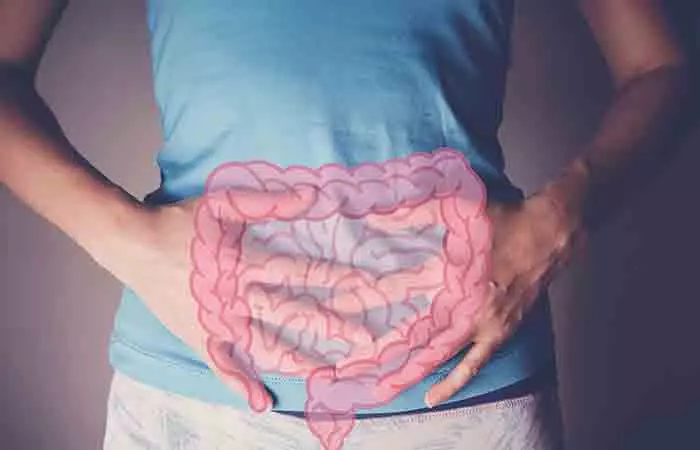
Bacteria like bifidobacteria and lactic acid bacteria promote digestion and gut health. Research on rodents suggests that sucralose may reduce these good bacteria in the gut while not affecting the bad bacteria (6).
The following graph was obtained from a letter that was submitted to the editor of the journal Food and Chemical Toxicology which examined the impact of sucralose on rats’ gut microbiota. In the study, Sucralose was given to rats for 12 weeks after which their fecal samples were examined for lactobacilli, a good bacteria that aids digestion. As seen in the graph, the administration of sucralose significantly reduced lactobacilli, even at the lowest dose of 1.1 mg/kg/d, or roughly one 12-ounce drink sweetened with sucralose for a 120-pound kid, teen, or woman.

Sucralose Disrupts Gut Microbiota
Source: Revisited: Assessing the in vivo data on low/no-calorie sweeteners and the gut microbiotaLisa Richards, a nutritionist at The Candida Diet, weighs in saying, “Sucralose causes gastrointestinal irritation and bloating besides reducing the healthy gut bacteria. Generally, these bacteria help prevent bloating by improving overall gut health.” However, more human studies are warranted to understand this downside of sucralose.
2. May Become Harmful When Baked
Sucralose tends to break down when baked and interact with other ingredients, leaving behind a bitter taste when consumed. Cooking at high temperatures also causes sucralose to produce a compound called chloropropanol, which has carcinogenic (cancer-causing) properties (7).
3. May Cause Bloating

Artificial sweeteners are linked to overeating, which, in turn, may cause bloating, says Ms. Richards. Diet Soda contains sucralose, the most common culprit of gas and bloating. This can negate any weight loss that may occur, she adds. However, more research is warranted to understand this phenomenon. You may know more about diet soda to further investigate its impact on your health.
4. May Affect Dental Health

“Although sucralose is not as bad as sugar, studies have shown that artificial sweeteners can soften enamel by 30-50%. Citric acid and phosphoric acid are the main culprits behind tooth decay. Sugar is broken down by bacteria that release these acids. Unfortunately, these acids are also found in sugar-free candies and colas,” informs Evan McCarthy, a dental care expert and the founder of Sporting Smiles. However, more studies are needed to arrive at a definitive conclusion in this regard.
5. May Increase The Risk Of Cancer
The International Agency for Research on Cancer (IARC) had classified sucralose as “possibly carcinogenic” to humans (8). A study conducted on rats showed that rats fed sucralose had higher rates of cancerous tumors compared to those who were not given sucralose. It also had increased rates of lymphoma and leukemia (9).
A French population-based cohort study done on 102,865 adults analyzes the association between artificial sweetener consumption and cancer risk. Sucralose was one of the main sweeteners contributing to 10% of intakes with 14% of consumers in the study population who consumed 15 mg per kg body weight per day. At the follow-up, 3,358 cancer cases were reported. In general, the study showed an increased risk of cancer in artificial sweetener consumers.
6. May Cause Kidney Damage
In a study, mice that consumed sucralose over a long period experienced kidney damage. Mice that drank water mixed with sucralose saw an elevation in kidney enzymes and damage in certain sections of the organ, while those that drank pure water did not experience any changes (10). Thus, kidney damage is one of the major sucralose health risks to watch out for.
7. May Cause DNA Damage
Another study found that sucralose damaged the DNA of human cells. The researchers tested the effects of sucralose on the blood cells in common carp and found that it caused genetic mutations and chromosomal abnormalities (11).
8. May Cause Behavioral Changes
In another study, rats that were fed sucralose exhibited behavioral changes including hyperactivity and anxiety. These behaviors could be caused by the ability of sucralose to mimic the effect of dopamine, a neurotransmitter that affects mood and behavior (12).
Additionally, discontinuing sucralose may improve your energy level! Susan, who shares her life experiences on her blog, decided to stop using artificial sweeteners. She noticed that her energy level and brain functioning had improved. She writes, “I have much more energy than I have had in recent weeks, and I wake up feeling more alert — the fog is gone. I feel more like my old self, more like I should. I also noticed an immediate decrease in my carpal tunnel symptoms (i).”
These were some of the potential reasons why sucralose is bad for you. Wondering what to choose between sugar and artificial sugar? Or to put it in plain terms, is sucralose good or bad when compared to regular sugar? We have cleared this out for you in the following section.
Sucralose Vs. Sugar
Real sugar is naturally healthier, given that it is nature-derived. However, its excess intake may bring you as much trouble. Such people may switch over to artificial sweeteners like sucralose.
As stated, sucralose allows you to enjoy sweets while maintaining your blood sugar and insulin levels. It also helps you maintain a low-calorie diet. Both these goals may be difficult to achieve with sugar. While you need to consider the drawbacks of sucralose as well, remember that it has been scientifically approved for use globally. Ms. Doebrich recommends, “According to the FDA, the Acceptable Daily Intake (ADI) of sucralose is 5 mg/kg/day.” So, consume it, but in small amounts.
Note: As per the Code of Federal Regulations, the additive may be used as a sweetener in foods generally (8).
 Trivia
TriviaBoth sucrose and sugar have their pros and cons/ But if you are looking for a more natural alternative, you can try stevia. But is it healthier than sucralose? Take a look in the next section.
Sucralose Vs. Stevia
Stevia is a natural, zero-calorie sweetener, but it can occasionally have a slightly bitter or metallic taste. Many people use it to cut down their calorie intake and is considered sweeter than sugar (13).
Sucralose, on the other hand, is artificially made from natural sugar and has no bitter taste.
While some prefer stevia because of its natural source, others prefer sucralose due to its delightful sweetness. It is important to note that both sweeteners should be consumed in moderation.
Infographic: Potential Benefits And Side Effects Of Sucralose
Sucralose has gained popularity as a sugar substitute in recent years. It reduces calorie intake and helps those who are trying to lose weight. It is also used by manufacturers in various snacks and beverages, such as diet soda. However, there are two sides to the coin, and sucralose has its fair share of benefits as well as side effects. Check out the infographic below to learn more about this artificial sweetener.
Some thing wrong with infographic shortcode. please verify shortcode syntaxThe usage of sucralose as a substitute for sugar is gaining popularity. But the question of whether sucralose is good or bad remains inconclusive. However, sucralose exhibits some positive effects. It does not affect the daily caloric intake as it does not have any calories in it. It also does not affect blood sugar levels. However, there are a few side effects associated with sucralose intake. It may kill beneficial gut bacteria, trigger bloating, be harmful if baked, and negatively affect your dental health. Hence, caution is advised while consuming it.
Frequently Asked Questions
Does sucralose make you fat?
No. Sucralose provides no calories and has no major effects on body weight or fat mass (9).
Does sucralose affect the liver?
Possibly. Sucralose administration had caused severe liver damage in mice (10). However, more research is warranted on humans.
Is sucralose safe for pregnant women or breastfeeding mothers?
Generally, it is considered safe for pregnant women and breastfeeding mothers when taken in moderation (14).
Is sucralose safe for children to consume?
Yes. According to the United States Food and Drug Administration (US-FDA) authority, sucralose is safe for children to consume (15).
Does sucralose have any impact on appetite or hunger levels?
Yes. Anecdotal evidence suggests it is a low-calorie sweetener that may stimulate a desire for food intake by interfering with the body’s normal energy intake regulation. However, limited data is available to support this claim.
Are there any natural alternatives to sucralose as a sweetener?
Yes. You can use honey, maple syrup, or agave nectar instead of sucralose as natural sweeteners.
Should I consult a healthcare professional before consuming products containing sucralose?
Yes. If you have any preexisting health concerns, it is recommended to consult your healthcare provider before including sucralose in your routine to avoid any adverse effects.
Illustration: Is Sucralose Bad For You? Benefits And Side Effects To Know
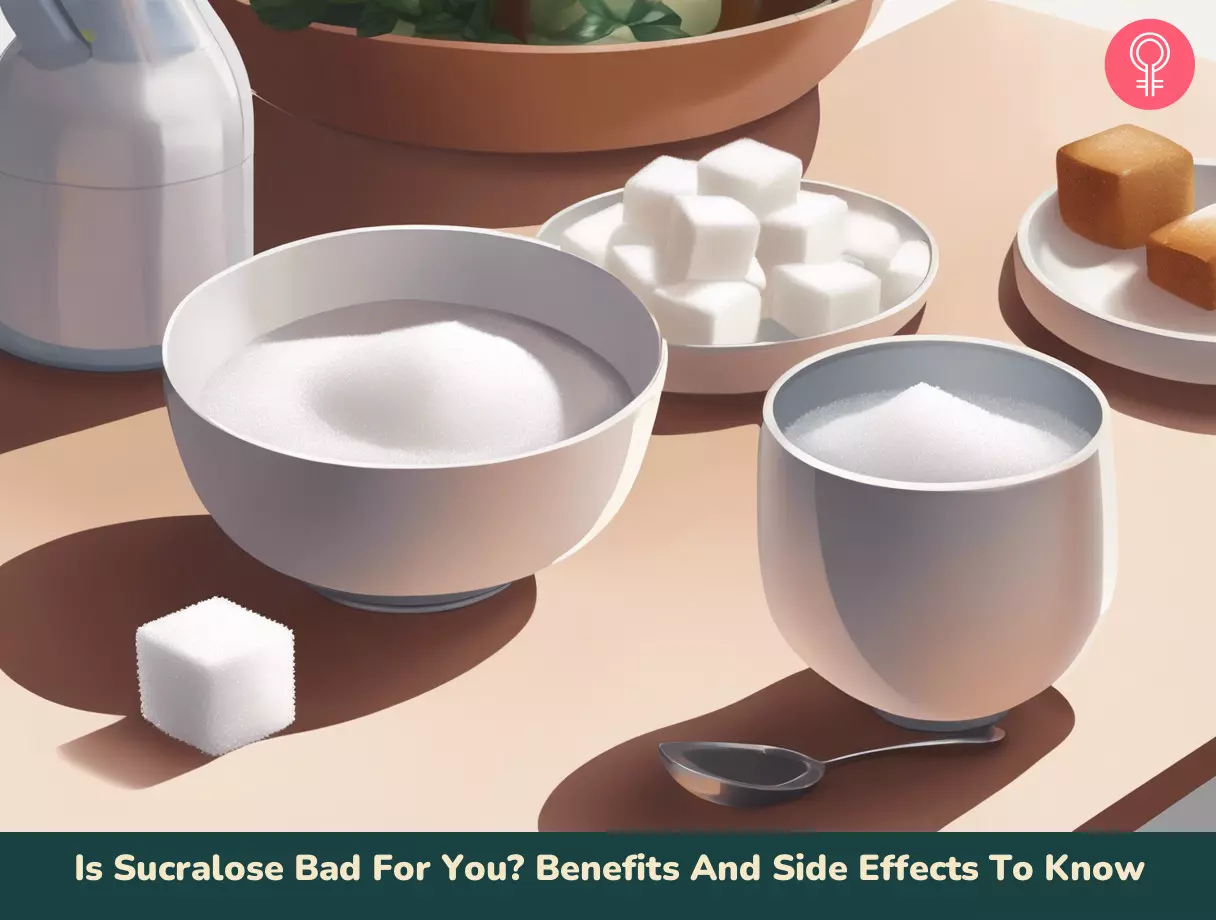
Image: Stable Diffusion/StyleCraze Design Team
Discover the truth about sucralose and its potential effects on your health. Watch the video below to explore its pros and cons, and make informed decisions about its consumption.
Personal Experience: Source
StyleCraze's articles are interwoven with authentic personal narratives that provide depth and resonance to our content. Below are the sources of the personal accounts referenced in this article.
i. The Dangers of Artificial Sweeteners – My Storyhttps://hopeandrelevance.wordpress.com/2013/06/25/the-dangers-of-artificial-sweeteners-my-story/
References
Articles on StyleCraze are backed by verified information from peer-reviewed and academic research papers, reputed organizations, research institutions, and medical associations to ensure accuracy and relevance. Read our editorial policy to learn more.
- Artificial Sweeteners: A Systematic Review and Primer for Gastroenterologists
https://pmc.ncbi.nlm.nih.gov/articles/PMC4819855/# - Effect of the artificial sweetener sucralose on gastric emptying and incretin hormone release in healthy subjects
https://pubmed.ncbi.nlm.nih.gov/19221011/ - Effect of the artificial sweetener sucralose on small intestinal glucose absorption in healthy human subjects
https://www.ncbi.nlm.nih.gov/pubmed/20420761 - Sucralose affects glycemic and hormonal responses to an oral glucose load
https://pubmed.ncbi.nlm.nih.gov/23633524/ - The Impact of Artificial Sweeteners on Body Weight Control and Glucose Homeostasis
https://www.ncbi.nlm.nih.gov/labs/pmc/articles/PMC7817779/ - Splenda alters gut microflora and increases intestinal p-glycoprotein and cytochrome p-450 in male rats
https://pubmed.ncbi.nlm.nih.gov/18800291/ - Sucralose A Synthetic Organochlorine Sweetener: Overview of Biological Issues
https://www.ncbi.nlm.nih.gov/labs/pmc/articles/PMC3856475/ - IARC Monographs on the Evaluation of Carcinogenic Risks to Humans
https://www.govinfo.gov/content/pkg/FR-1998-04-03/pdf/98-8750.pdf - Sucralose administered in feed, beginning prenatally through lifespan, induces hematopoietic neoplasias in male swiss mice
https://www.ncbi.nlm.nih.gov/pmc/articles/PMC4894270/ - The hidden hazardous effects of stevia and sucralose consumption in male and female albino mice in comparison to sucrose
https://www.sciencedirect.com/science/article/pii/S1319016420301997 - Alterations to DNA, apoptosis and oxidative damage induced by sucralose in blood cells of Cyprinus carpio
https://pubmed.ncbi.nlm.nih.gov/31351285/ - Attention-Deficit/Hyperactivity Disorder: Is it Time to Reappraise the Role of Sugar Consumption
https://www.ncbi.nlm.nih.gov/pmc/articles/PMC3598008/ - The Impact of Artificial Sweeteners on Body Weight Control and Glucose Homeostasis
https://www.ncbi.nlm.nih.gov/pmc/articles/PMC4890837/ - Is Sucralose Bad For You? Pros And Side Effects To Know
https://www.ncbi.nlm.nih.gov/pmc/articles/PMC5583633/ - Artificial sweeteners as a sugar substitute: Are they really safe?
https://www.ncbi.nlm.nih.gov/pmc/articles/PMC4899993/
Read full bio of Reda Elmardi
Read full bio of Sindhu Koganti
Read full bio of Ravi Teja Tadimalla
Read full bio of Moksha Gandhi






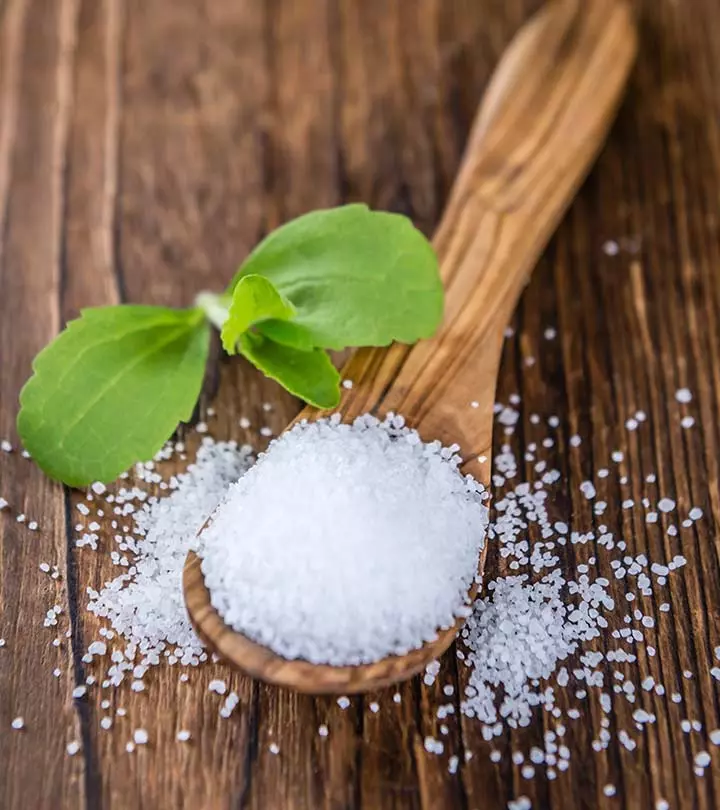
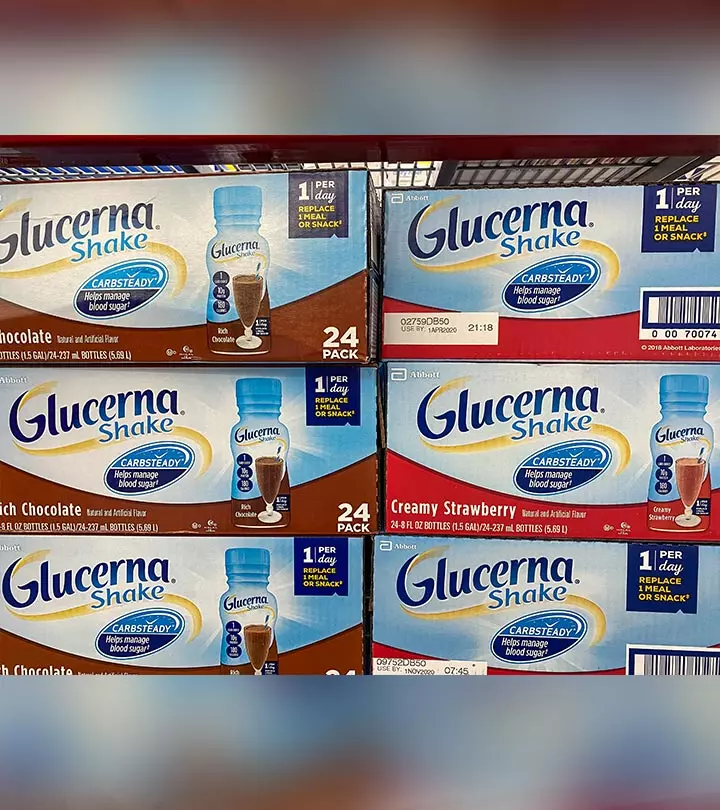
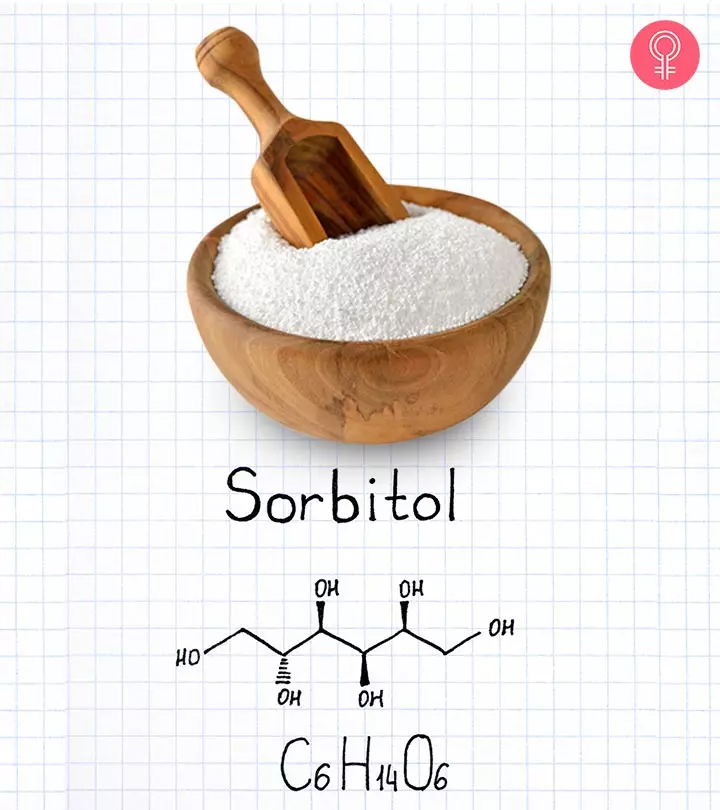
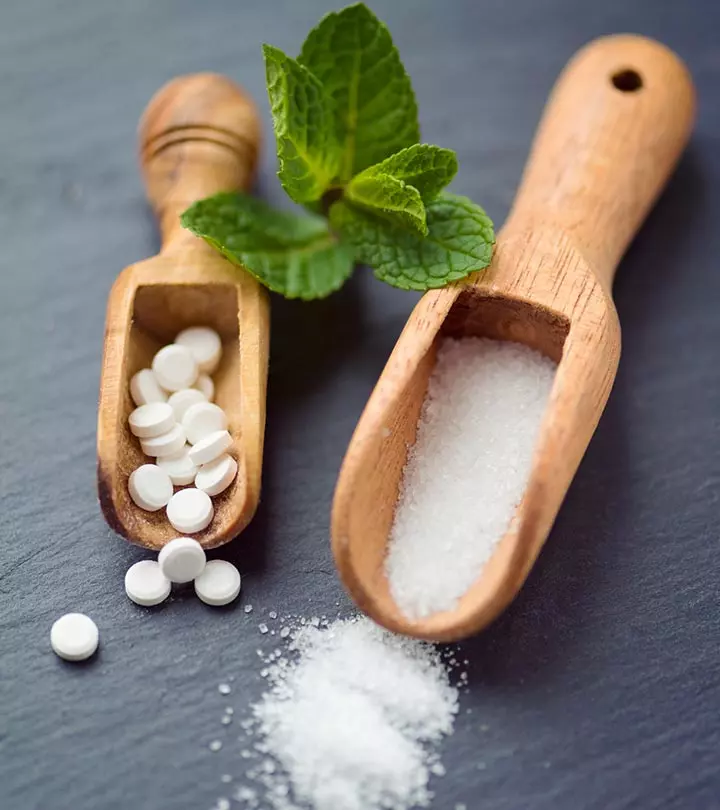


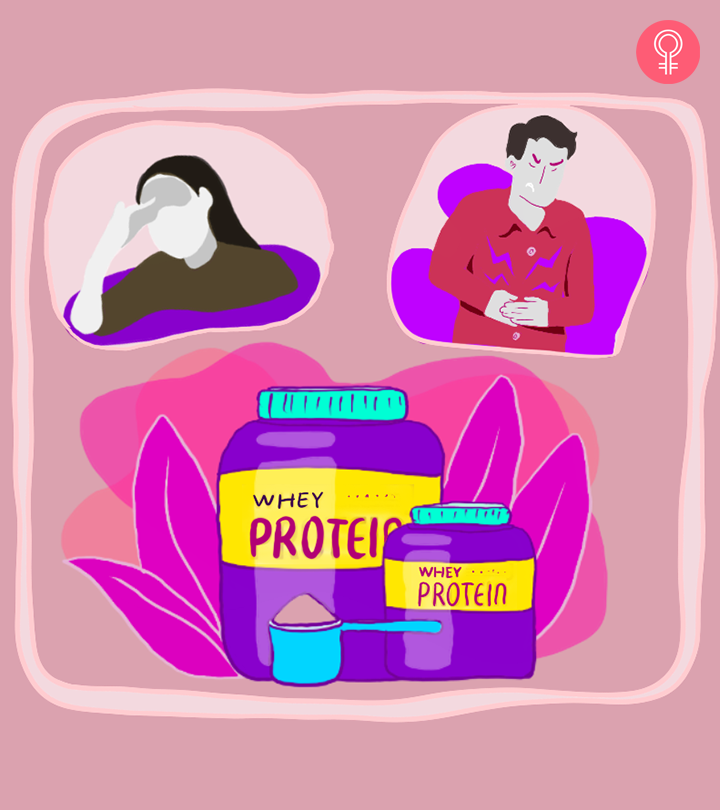

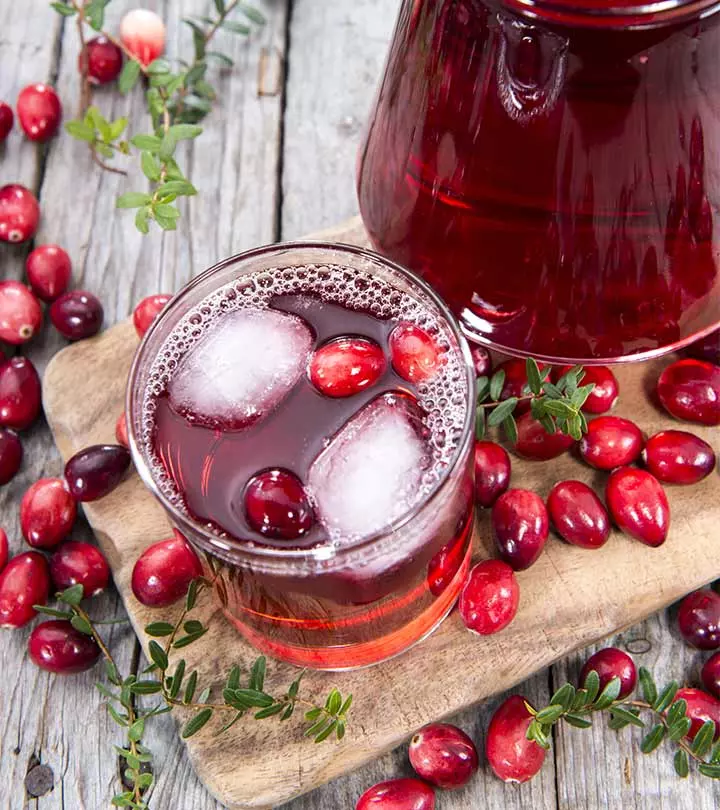
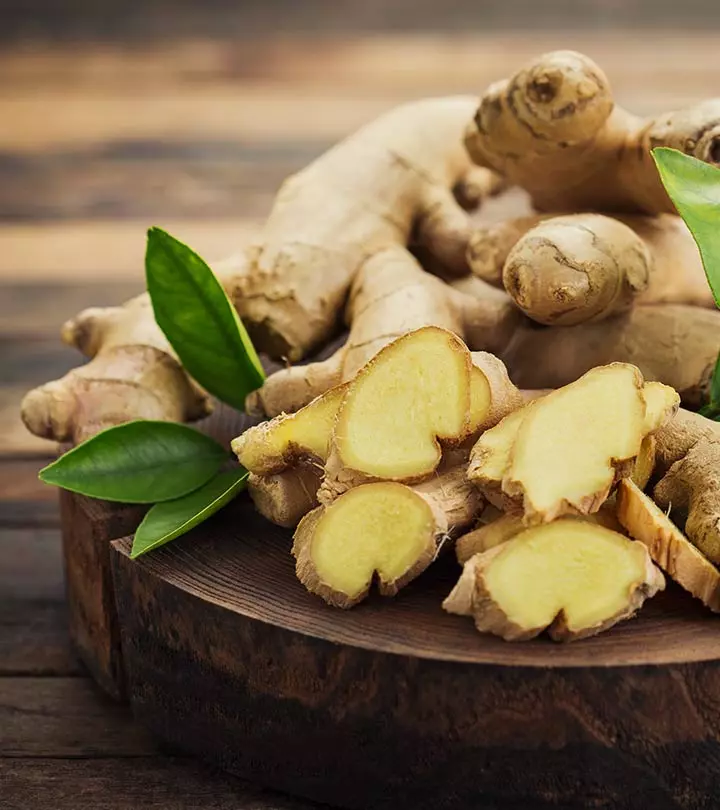
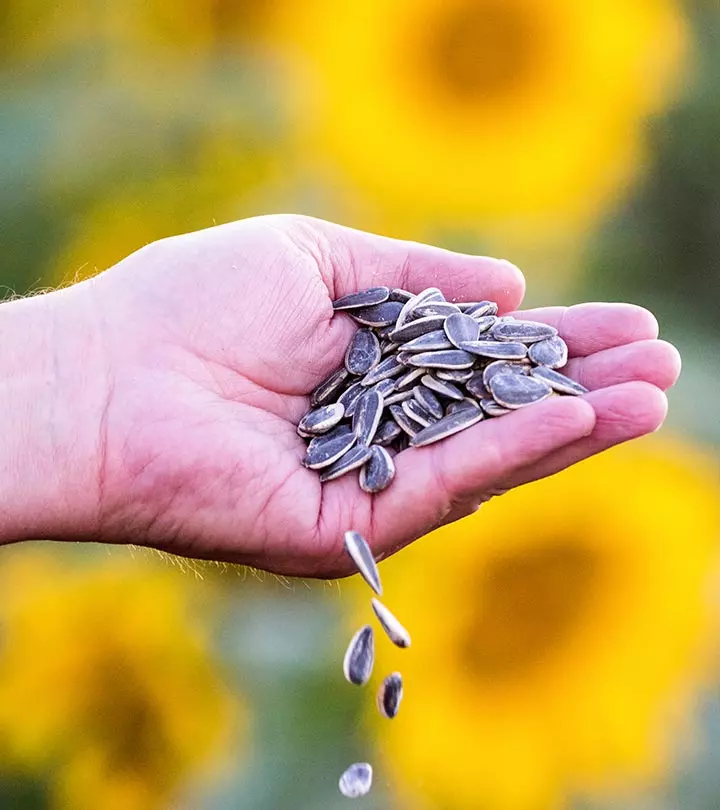

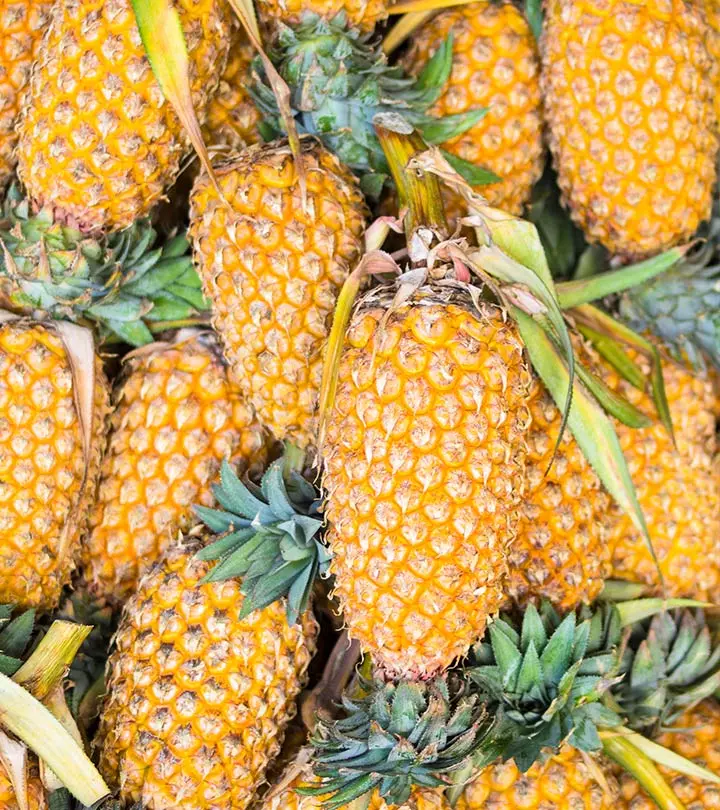
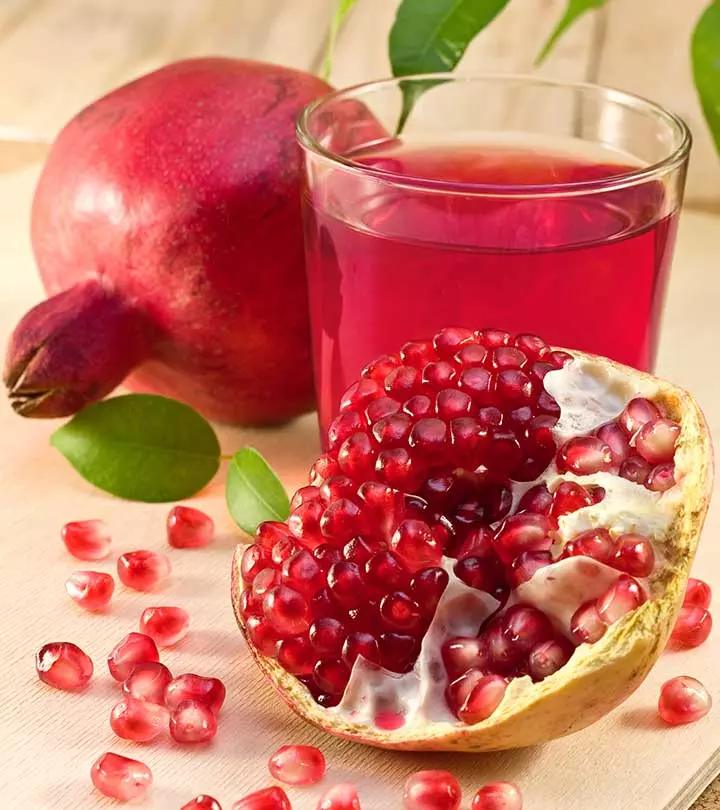

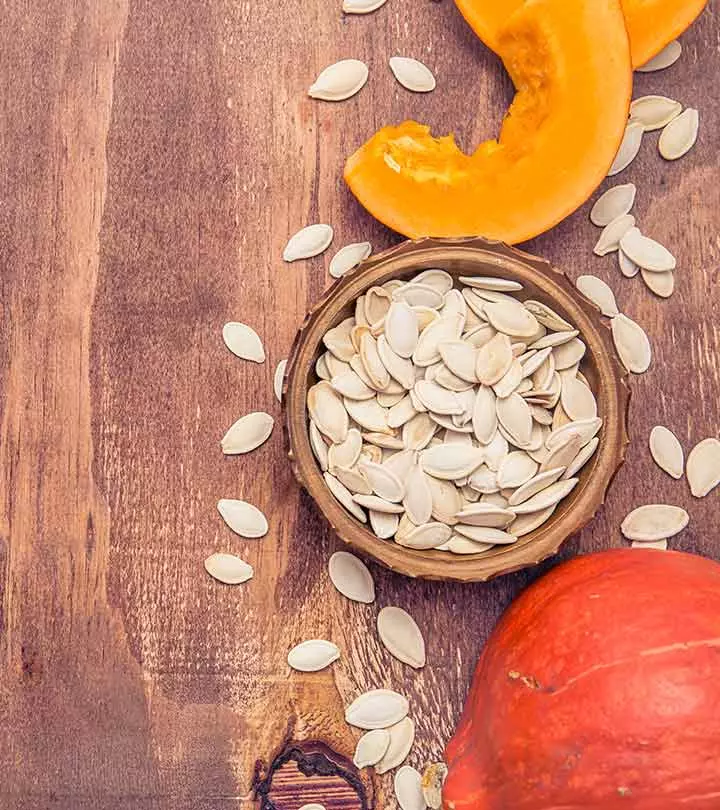
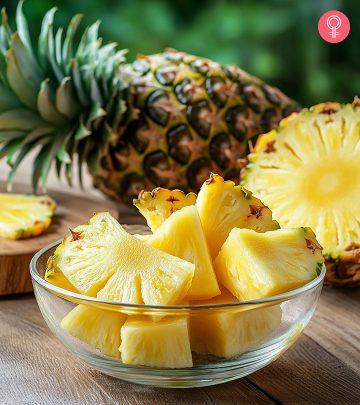
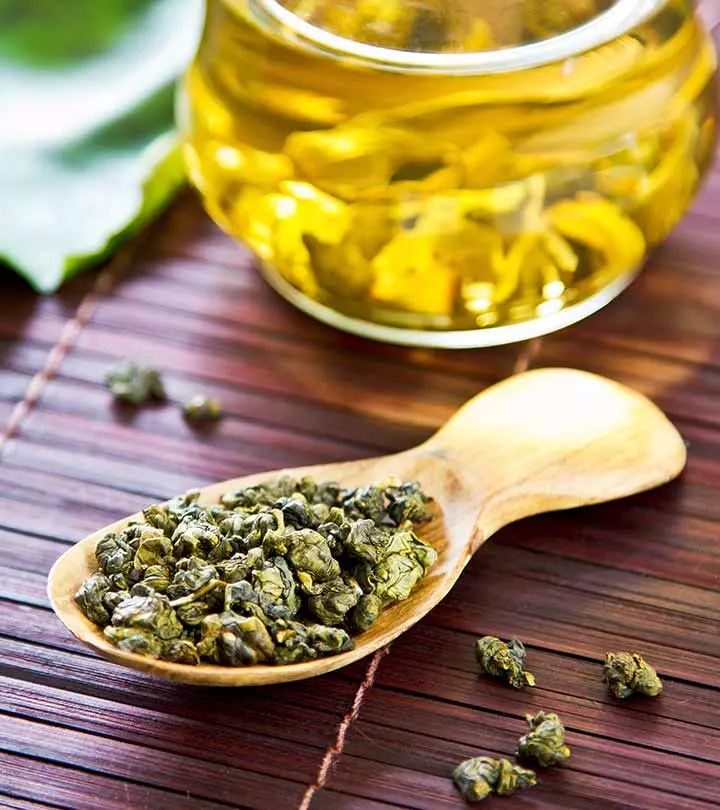
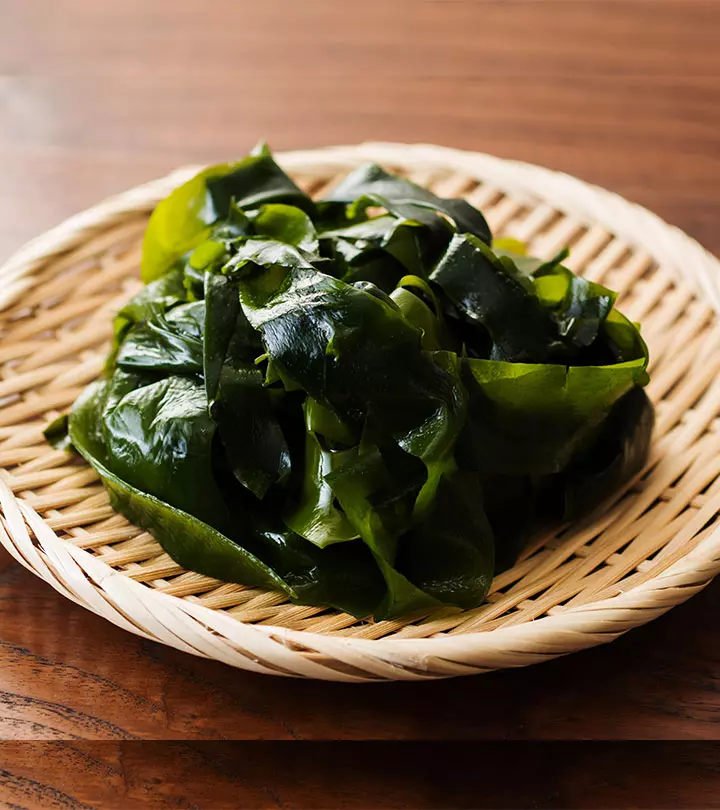
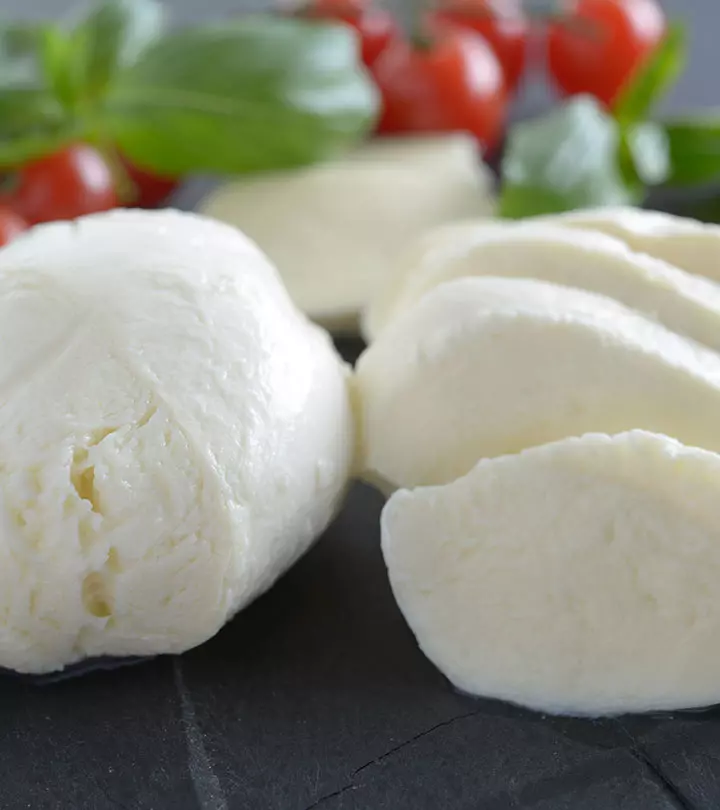
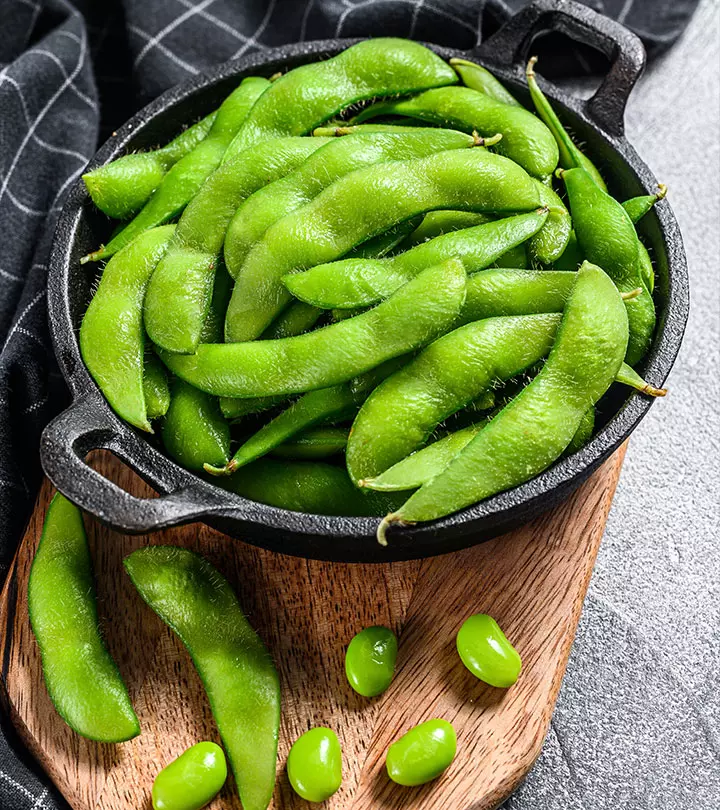
Community Experiences
Join the conversation and become a part of our empowering community! Share your stories, experiences, and insights to connect with other beauty, lifestyle, and health enthusiasts.